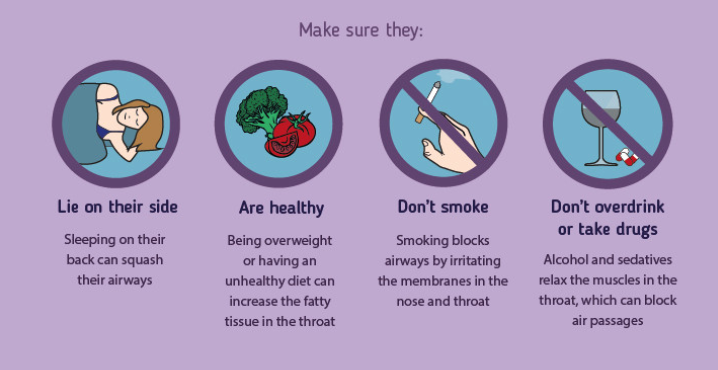Don’t ignore the snore, as it could be serious.


Do you snore? Many of us would be ashamed to admit it. However, a quarter of Australian men and 17% of women struggle with snoring.
For those of us that are guilty, it’s important to note that snoring may be a sign that something more serious is going on.
If you’re concerned about what your snoring might mean, here are the answers.
What can cause snoring?
In simplest terms, when we sleep the muscles of the upper airway relax causing it to somewhat collapse. For those who snore, however, the airway narrows excessively and as we breathe in to draw air into the lungs, it can cause the upper airway tissues to vibrate or flutter – in turn creating the sound we know as snoring.
As well as this, people with too much throat and nasal tissue and the rapid opening and closing of the airway can cause snoring. An example of this is the tongue hitting the back of the throat.
What can trigger snoring?
If you typically don’t snore but have been lately, there may be triggers in your everyday lifestyle.
These include:
- Alcohol: Alcohol is quite possibly the biggest trigger to snoring as it blocks your nose and relaxes the airway muscles.
- Sleeping on your back: This contributes to collapsing of the airway as the back of the throat becomes blocked by the tongue.
- Smoking: Smoking can often cause fluid build up that narrows the airway as it irritates the membrane which lines the nose and throat.
- Illness: Having a blocked nose can contribute to snoring as it creates a need for larger suction pressures to draw air into the lungs, therefore further narrowing the airway. Enlarged tonsils can also narrow the airway and is a main cause of snoring with children.
Are there health risks from snoring?
The most common risk from snoring is sleep apnoea – a disorder where breathing can stop for approximately ten seconds at a time and is caused by the upper airway repeatedly closing during sleep.
Those with extreme cases of Sleep Apnoea can sometimes have obstructions to breathing for more than a minute, therefore starving the body of oxygen.
According to Professor Danny Eckert from Neuroscience Research Australia, as the throat area is continuously closing there is obvious risk of oxygen levels going down and putting strain on the heart.
Approximately 1.5 million Australians (or 5% of the nation’s population) are affected by sleep disorders. Alarmingly, it’s estimated 80% of those with sleep disorders are also undiagnosed and are at risk.
These risks have been identified in studies which linked Sleep Apnoea to:
- High blood pressure: 50% of Australians with high blood pressure also have sleep apnoea.
- Type 2 diabetes: 58% of patients diagnosed with type 2 diabetes have sleep apnoea.
- Obesity: 77% of people categorised as obese on the Body Mass Index (BMI) scale also have severe sleep apnoea.
- Motor vehicle accidents: Frighteningly, people with Sleep Apnoea are seven times more likely to be involved in a motor vehicle accident.
How can I prevent snoring?
As previously mentioned, there are many triggers to snoring which are lifestyle related and can be prevented to some extent.
If you or someone you know are struggling to prevent snoring, show them the below easy tips.


Image source: The Sleep Matters Club.
If you’re looking for other ways to stop snoring read our article: New snoring device promises a better night’s sleep




